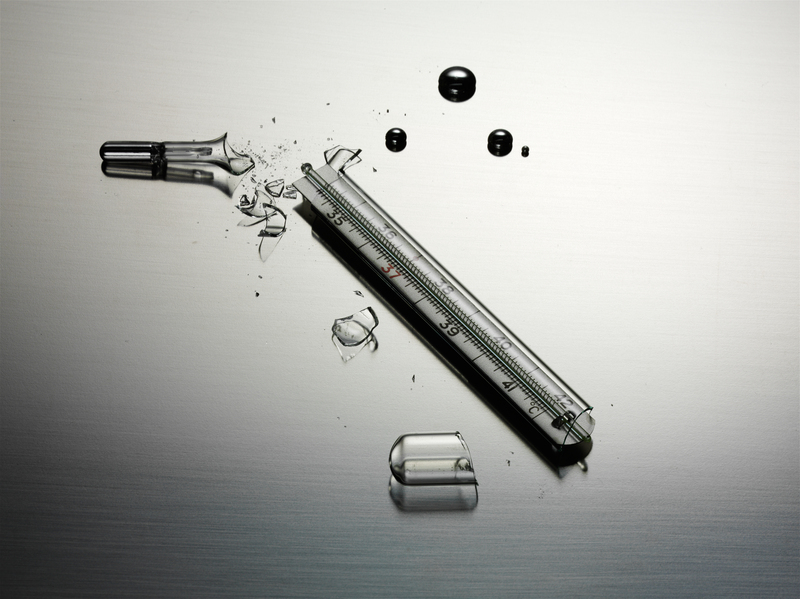Steps Everyone Can Take to Dispose of PPE Waste Responsibly
In today's world, PPE (Personal Protective Equipment) waste disposal has become an issue of growing concern. The COVID-19 pandemic led to a dramatic rise in the use of face masks, gloves, face shields, and other forms of PPE. However, improper disposal is posing a threat to the environment, wildlife, and even public health. Whether you are an individual, a business owner, or a community leader, everyone can play a part in ensuring responsible PPE waste management.

Understanding the Importance of Proper PPE Waste Disposal
*Personal Protective Equipment waste* is not like regular household waste. Items like disposable masks and gloves are often contaminated and can spread infection if not handled carefully. Improperly discarded PPE can:
- Spread diseases as used items may carry viruses or bacteria
- Pollute the environment, especially waterways and soil
- Pose choking or entanglement risks to wildlife
- Block city drainage systems, causing flooding or other infrastructure problems
Proper disposal of PPE waste mitigates these risks and helps in creating a cleaner and safer world. Let's explore some of the steps everyone can take to dispose of PPE waste responsibly.
Step 1: Recognize Different Types of PPE Waste
Not all PPE is made from the same materials or requires the same disposal method. To be responsible, first identify the category of PPE you are using:
- Single-use disposable PPE: Surgical masks, latex gloves, disposable gowns, etc.
- Reusable PPE: Fabric face coverings, washable gloves, face shields.
- Special medical PPE: Items used in medical settings, often heavily contaminated.
By differentiating between these categories, you can avoid putting infectious waste with recyclables and minimize contamination.
Know the Hazards
- Single-use PPE waste should never be mixed with regular recyclables, as contamination can endanger workers at sorting facilities.
- Reusable PPE must be cleaned thoroughly before reuse or washed following proper protocols.
Step 2: Prepare Used PPE for Disposal
Responsible PPE waste recycling and disposal begins with correct preparation. Follow these guidelines:
- Do not throw PPE on the streets, ground, or waterways.
- Wrap used PPE such as masks and gloves in a plastic or biodegradable bag before placing it in the waste bin. This step limits direct exposure and spread of germs.
- Tie the bag securely before throwing it in your general waste bin.
- Wash your hands with soap and water for at least 20 seconds after handling used PPE.
Such careful steps not only protect sanitation workers but also the general population from potential biohazards.
Step 3: Use Designated PPE Bins Whenever Possible
Many municipalities, offices, and even retail locations have started providing dedicated PPE disposal bins. These are often marked with clear signage for discarded masks, gloves, and other PPE items.
- Utilize these bins whenever you spot them in public areas, hospitals, offices, or shopping complexes.
- Avoid mixing PPE waste with recyclables, compost, or regular litter bins.
- If no dedicated bin is available, ensure PPE goes into a securely lined trash receptacle.
Encouraging Proper Disposal
- Community members can advocate for more accessible PPE bins in public spaces.
- Businesses can place guidance and signage near entrances and exits.
Step 4: Never Litter or Flush PPE Down the Toilet
A significant portion of PPE pollution comes from items discarded inappropriately. Masks and gloves should never be flushed down the toilet or left on sidewalks, city streets, parks, or beaches.
- PPE such as masks can clog plumbing systems and cause severe backups in sewage treatment plants.
- *Littered PPE can travel via stormwater drains into rivers and oceans*, resulting in environmental hazards.
Be a responsible citizen. Hold onto your used PPE until you find an appropriate disposal receptacle.
Step 5: Consider PPE Recycling Programs
Many might not be aware, but some specialty facilities offer *PPE waste recycling*. Not all PPE items are recyclable through standard municipal programs, but a growing number of organizations are developing ways to process and repurpose PPE materials.
How to Participate in PPE Recycling
- Research if your municipality or local recycling center accepts PPE materials (check their websites or contact them directly).
- Consider joining mail-back schemes such as TerraCycle's PPE Recycling Program, which allows households and businesses to collect used PPE in specified boxes, then ship them for specialized recycling.
- Encourage your workplace or community to sign up for PPE recycling initiatives.
Eco-Friendly PPE Alternatives
- Where appropriate, switch to washable, reusable masks and gloves to reduce single-use PPE waste.
- Choose PPE made from biodegradable or compostable materials when possible.
Responsible PPE disposal goes hand-in-hand with responsible PPE purchase and usage. Using eco-friendly options can substantially reduce the amount of waste generated.
Step 6: Raise Awareness on Proper PPE Waste Disposal
One of the most impactful things you can do is to educate those around you about *responsible PPE waste management*. Many people may not realize the importance or the correct methods of PPE disposal.
Ways to Spread the Word
- Share information through social media about how PPE should be disposed of.
- Place informative posters in public places, schools, businesses, and places of worship.
- Talk to family, friends, and colleagues about the necessity for careful disposal.
- Encourage local community groups to organize clean-ups or PPE collection drives.
Education and consistent habits are key to ensuring a cleaner, safer future for everyone.
Step 7: Support Community and Legislative Efforts
Efforts at the individual level are essential but broader change is achieved through local government, legislation, and organized community participation.
How to Get Involved
- Advocate for city councils to install more PPE disposal bins in high-traffic areas.
- Support or propose regulations requiring businesses to provide proper PPE waste receptacles for customers and employees.
- Participate in local environmental groups focused on litter prevention and responsible waste management.
Collective action makes a measurable difference in keeping cities, parks, and natural areas clear of irresponsibly disposed PPE waste.
Step 8: Protect Waste Handlers and Sanitation Workers
It's important to recognize that improper PPE waste handling can put the health of sanitation workers and waste management teams at risk. Disposing of PPE responsibly includes taking the following precautions:
- Always double-bag PPE waste if possible, especially if someone in the household is ill.
- Mark bags with clear labels if they contain contaminated materials.
- Never try to burn or destroy PPE at home, as this can release hazardous fumes.
Tips for Multi-Unit Dwellings
- In apartments or condominiums, make sure all residents are aware of proper procedures for disposing of *PPE waste* in shared waste rooms.
- Seek help from building management to install or regularly empty sealed PPE bins.
The Environmental Impact of PPE Waste
*Personal Protective Equipment*, although essential for human safety, presents serious environmental consequences if not dealt with properly. Studies have revealed:
- An estimated 1.6 billion disposable masks entered the oceans in 2020 alone, resulting in potential harm to marine life.
- Microplastics generated from degraded PPE are increasingly found in the food chain, impacting both aquatic and terrestrial species, as well as humans.
By understanding the life cycle of microplastics and the dangers of excess plastic waste, we all become more motivated to take positive action.
Innovations and Future Solutions For PPE Waste
The science and waste management communities are continually investigating new ways to reduce, recycle or repurpose PPE waste. Some promising avenues include:
- Developing fully biodegradable PPE items.
- Techniques to melt and reuse plastics from masks and gloves in construction materials or energy production.
- Community-based mask take-back schemes where waste is transformed into reusable products.
How Can You Stay Updated?
- Follow local environmental news for updates on PPE waste recycling programs.
- Sign up for newsletters or alerts from reputable organizations such as the Environmental Protection Agency (EPA) or local waste management authorities.

Frequently Asked Questions About PPE Waste Disposal
Can PPE Waste be Recycled With Normal Plastics?
No. Most disposable PPE contains materials and contaminants which cannot be accepted in normal plastic recycling streams. Always check local guidelines for exceptions or specialty recycling.
Are There Fines for Littering PPE Waste?
Many locations have introduced fines for improper disposal of PPE such as facemasks and gloves. Check your local community regulations to avoid penalties.
Is Burning PPE an Option for Disposal?
Burning PPE at home is strongly discouraged. This process releases toxic fumes and is potentially illegal. Leave PPE waste disposal to licensed waste management facilities.
What If No PPE Bin is Available?
Place your used PPE in a sealed plastic or biodegradable bag and dispose of it with your general household waste.
Conclusion: Small Steps, Big Impact in Responsible PPE Waste Disposal
Every individual action counts when it comes to PPE waste disposal practices. By following the steps above--recognizing PPE types, using proper disposal methods, never littering, participating in recycling, raising awareness, supporting community efforts, and protecting waste workers--you ensure that your use of personal protective equipment does not come at the environment's expense.
Responsible PPE waste disposal is a crucial aspect of modern environmental stewardship. Let's all commit to making these steps a daily habit, and encourage others to do the same for a healthier, safer, and cleaner planet.
Take Action Today!
*Share this article with friends and family so that together, we can make responsible PPE waste management a universal standard.*
